Retro Replay Review
Gameplay
Press Your Luck faithfully adapts the classic 1980s game show format into a home video game, pitting you against two computer-controlled opponents in a battle of wits and nerve. The title features two distinct phases: a quiz round and the iconic “Big Board” round. In the quiz segment, timely trivia responses award you spins to wield in the following board phase, creating a satisfying feedback loop between knowledge and high-stakes risk.
(HEY YOU!! We hope you enjoy! We try not to run ads. So basically, this is a very expensive hobby running this site. Please consider joining us for updates, forums, and more. Network w/ us to make some cash or friends while retro gaming, and you can win some free retro games for posting. Okay, carry on 👍)
When it’s time to face the Big Board, you decide whether to use each spin for yourself—potentially increasing your cash haul—or press your luck and force a rival to take it instead. Each square on the board presents opportunities for bonus cash, extra spins or the dreaded Whammy. Landing on a Whammy not only strips you of your current earnings, it also inches you closer to elimination once you collect four of them.
The pacing is brisk, and the back-and-forth of taxing your opponents versus safeguarding your own tally keeps tension high. The AI opponents are fairly competent, adjusting their risk profiles based on the flow of the game—meaning no two sessions play out the same. Whether you’re a trivia buff or a risk-taker by nature, Press Your Luck offers a tight, repeatable experience that’s easy to pick up but hard to master.
Additional game modes, including a freeplay option for practice runs and a tournament bracket for extended play sessions, add variety to the core formula. While the title does not include multiplayer support beyond passing the controller, the CPU rivalries still manage to feel lively and unpredictable. Overall, the gameplay loop captures the spirit of the TV show while carving out its own niche in the home console lineup of its era.
Graphics
Visually, Press Your Luck leans into the limitations of early PC CGA graphics, offering a four-color palette that recalls the retro charm of the original DOS era. The character sprites representing you and your competitors are simple but expressive enough to convey victory dances or Whammy-induced gloom. On the Big Board, flashing boxes and color-coded highlights keep you focused on the numbers and warnings.
While missing the polish and animated flair of the televised version, the game’s minimalist aesthetic has its own appeal. The board layout is clearly rendered, with prize amounts and Whammy icons easy to distinguish at a glance. Background patterns and borders add a game-show sheen, even if they occasionally flicker on lower-end hardware.
Transitions between rounds are punctuated by brief animation sequences—spinning arrows, flashing cash totals, and Whammy grins—which, though rudimentary, inject small bursts of excitement. Overall, the graphics do exactly what they need to: present the essential information cleanly, maintain player focus, and evoke a sense of high-stakes gameplay without distracting clutter.
For retro gaming enthusiasts, the CGA presentation holds nostalgic value, recalling a time when gameplay depth mattered more than flashy visuals. If you’re seeking cutting-edge graphics, this isn’t the title for you—but if you appreciate the aesthetic charm and directness of early ‘90s DOS games, Press Your Luck delivers on its modest visual promise.
Story
As a faithful adaptation of a quiz-based game show, Press Your Luck does not follow a traditional narrative arc or character development. Instead, the “story” is generated through player interaction and in-the-moment drama. Each match unfolds like its own mini-tournament, complete with triumphs, whammies, and mounting tension as contestants jockey for the lead.
The sense of progression emerges naturally: you begin with zero spins and build momentum by answering trivia, then wrestle with mounting rewards and hazards on the Big Board. Every correct answer and every successful press of the luck feels significant, forming a loose story of risk versus reward. When your opponent stumbles on a Whammy, you relish the turn of fate; when you yourself are wiped out, the game conveys palpable disappointment.
Though there are no cutscenes or scripted moments, the award animations—cash flying across the screen, the Whammy’s mischievous dance—lend personality and humor to each round. Over the course of multiple matches, you’ll remember iconic near-misses or surprise comebacks almost as vividly as if you’d watched them play out on television.
Ultimately, the emerging narrative is driven by your choices: will you play it safe and bank spins for later, or gamble it all for a sudden leap ahead? This open-ended structure means every playthrough tells a different story, making Press Your Luck more of an interactive anecdote generator than a conventional tale—but that’s precisely its charm.
Overall Experience
Press Your Luck stands out as the sole commercially released home adaptation of the beloved ’80s game show, faithfully preserving its core mechanics and competitive spirit. From the quiz intro to the high-tension board battles, it encapsulates the thrill of the studio version in a compact PC package. Its user interface is intuitive, guiding you seamlessly from one phase to the next without needless complication.
The primary drawback lies in the dated graphics and lack of modern amenities like online multiplayer or customizable question banks. However, for retro aficionados and fans of classic game-show formats, these limitations are offset by the game’s addictive risk-reward dynamic. The AI opponents, while not infallible, provide adequate challenge, and the built-in modes ensure you’ll keep coming back for rematches.
Replay value is strong thanks to randomized quiz questions and board layouts, plus the unpredictable nature of Whammy placements. Sessions typically last just long enough to feel substantial without overstaying their welcome—perfect for quick gaming breaks or friendly competition around a single computer. If you yearn for a taste of televised game show excitement without leaving your sofa, Press Your Luck delivers precisely that.
In sum, Press Your Luck may not be a technological marvel, but its faithful adaptation of a timeless format, coupled with addictive gameplay loops and retro charm, make it a worthwhile addition to any vintage PC collection. Whether you’re driving up your own cash total or gleefully foisting spins on a rival, the suspense will keep you firmly on the edge of your seat—just as intended.
 Retro Replay Retro Replay gaming reviews, news, emulation, geek stuff and more!
Retro Replay Retro Replay gaming reviews, news, emulation, geek stuff and more!
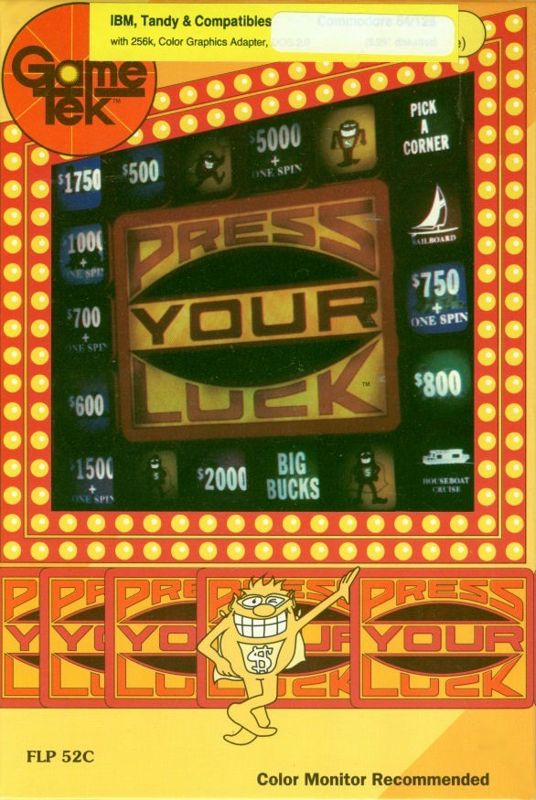
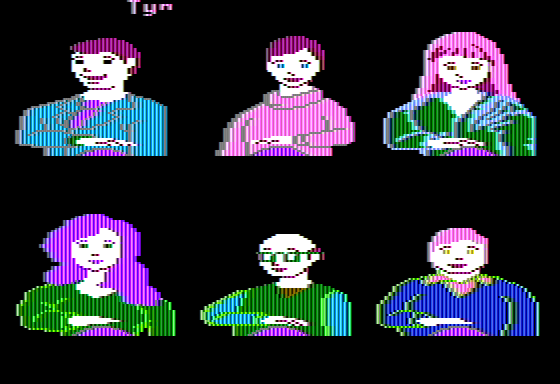
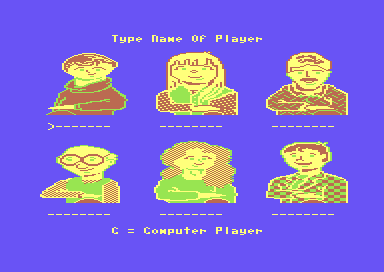

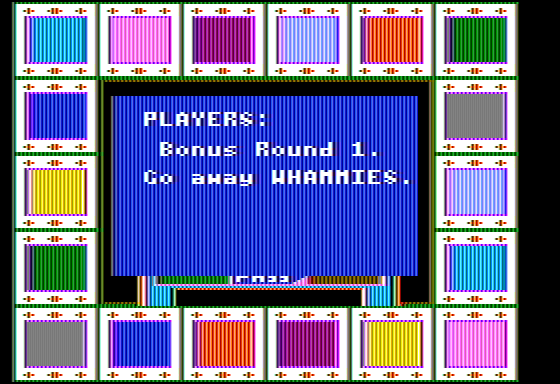
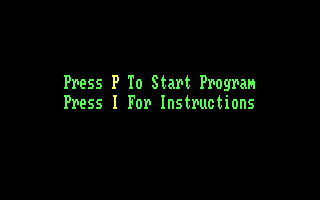



Reviews
There are no reviews yet.